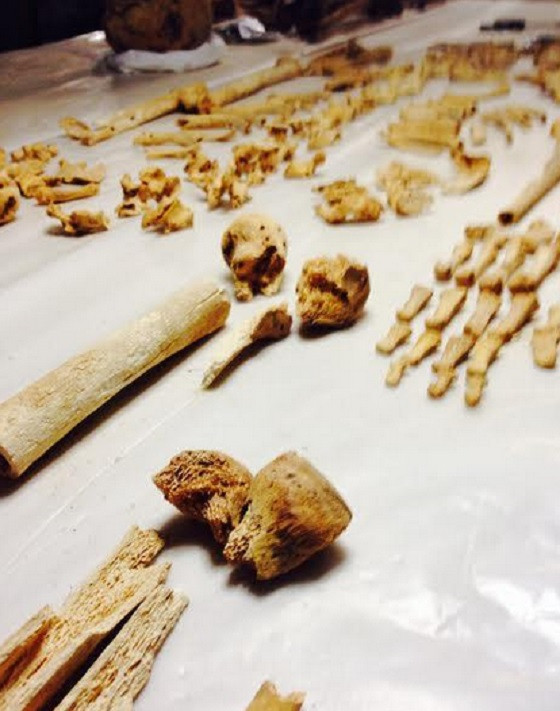Sudan Skeleton From 1200BC is Oldest Example of Human with Metastatic Cancer

A skeleton discovered in an ancient tomb in Sudan has become the oldest complete example of a human with metastatic cancer.
Archaeologists discovered the skeleton of a young adult male inside a tomb dating back to 1200BC.
The researchers, from Durham University and the British Museum, analysed the 3,000-year-old skeleton and found evidence of metastatic carcinoma – a cancer that had spread from one area to other parts of the body. The tumour had spread across large areas of his body.
Published in the journal PLoS ONE, the scientists say this is the oldest complete example of a spreading cancer ever discovered.
They believe the finding will help them understand the underlying causes of cancer in ancient populations and provide an insight into how the disease evolved.
Despite being one of the deadliest diseases of modern times, how cancer developed historically remains a mystery. Because of a distinct lack of archaeological evidence, it is though it is largely a man-made disease that developed as a result of modern living and increased lifespans.
The Sudanese skeleton suggests that cancer is not just a modern disease, but was present in ancient societies living in the Nile Valley.
The male skeleton was estimated to have been between 25 and 35 years old.
It was found at the site of Amara West in northern Sudan, around 750km from the capital Khartoum.
The skeleton came from a body originally buried on its back in a tomb that appears to have been used by high-status individuals, but not the ruling elite.

Lead author Michaela Binder said: "Very little is known about the antiquity, epidemiology and evolution of cancer in past human populations apart from some textual references and a small number of skeletons with signs of cancer.
"Insights gained from archaeological human remains like these can really help us to understand the evolution and history of modern diseases.
"Our analysis showed that the shape of the small lesions on the bones can only have been caused by a soft tissue cancer even though the exact origin is impossible to determine through the bones alone."
Previously, there had only been one convincing metastatic cancer case discovered before the first millennium BC.
Researchers believe the man's cancer could have been the result of environmental carcinogens, such as smoke from wood fires, a genetic factor, or from an infectious disease caused by parasites, the latter of which is most likely.
The disease schistosomiasis – caused by parasitic worms – has plagued people living in Egypt and Nubia since at least 1500BC and has been identified as a cause of bladder and breast cancer in men.
Binder said: "Through taking an evolutionary approach to cancer, information from ancient human remains may prove a vital element in finding ways to address one of the world's major health problems."
© Copyright IBTimes 2025. All rights reserved.






















